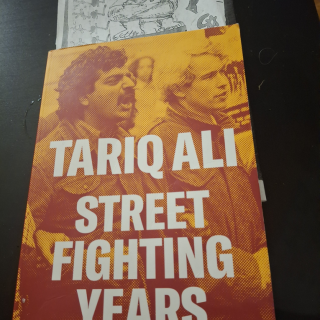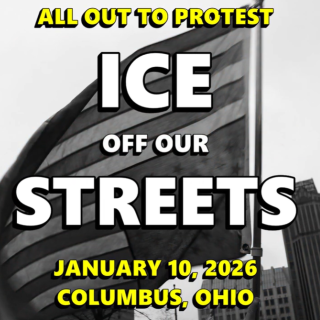Advertisement
Last year, I had a conversation about forgiveness with a friend who grew up in Jim Crow Nashville. He opined that black people forgive white people too much and too soon. (I rather doubt he’s forgiven racist whites or their repressive Jim Crow system.) As is often seen after an unspeakable tragedy afflicted on African Americans by whites, the former has routinely been quick to step forward and absolve the white community and the perpetrator with the healing balm of forgiveness. We should stop doing that, he said, because time and time again they have shown us that they are not deserving of it.
I grew up in the Black church–as did my friend–and I know that Black Christianity sees forgiveness as a commandment and something that helps bring us closer to salvation. It also seeks to ensure that blacks are not captives of or wiped out by white supremacy and terrorism; that we not only survive, but thrive in this racist country; that we are not defeated by anything whites inflict on us. Martin Luther King, Jr., frequently reminded us that suffering is redemptive.
I have to admit that one of my biggest failures as a Catholic is that I don’t forgive easily–myself or others. As a convert and former Protestant, I find the sacrament of Reconciliation–what used to be referred to as confession–as somewhat superfluous. I don’t need an intermediary to tell me when I’ve been wronged or when I’ve have wronged someone. On the occasions I have availed myself of the sacrament, I’ve quaked for days afterward, worried that I’ve really done something unforgivable, or wondering if I can be forgiven, why can’t I forgive others? I will take a lot of crap from people, but once they cross the Rubicon, they are dead to me–like Fredo Corleone in the Godfather Part II. While I don’t lie in bed at night thinking of ways to extract revenge, I sure as hell don’t forget. For the most part, people who have wronged me cease to exist. Some of my unpleasant childhood memories are connected to having been falsely accused of something, and then being expected to forgive the accuser. Too, I have often heard people say, “I can’t forget it, but I forgive you.” But isn’t remembering wrongs and grievances an indication that we aren’t forgiving them? If we remember, but that memory hurts less as time passes, does that mean we’ve bestowed forgiveness?
In 2015, the author Stacey Patterson wrote a searing article published in the Washington Post in which she urged African Americans to stop forgiving white racists and terrorists. Patterson said “Yet, the almost reflexive demand of forgiveness, especially for those dealing with death by racism, is about protecting whiteness, and America as a whole. This is yet another burden for black America.” A burden, according to Patterson, we ought to lay down. We are the only ones who do this. I sometimes think that one reason why whites don’t show contrition for the many racist things they do or say is that they know we–black people–will forgive them, so what’s the use of apologizing, or ruminating, or making the effort to be less racist? But long after the flowers wilt, the candles burn out, and the obligatory community kumbaya has been performed, black people are left to deal with the aftermath of these horrific acts.
Dylan Roof, a young, aggrieved white man who had hopes of starting a race war, sat through a one-hour Bible study class at Emanuel African Methodist Episcopal Church. The congregants had welcomed him, and after the lesson, he repaid their kindness by blaming African Americans for the rape of white women and taking over America. He then shot sixteen black people who had come to study the Word, killing nine of them. To this day he has shown not an ounce of remorse. I can still hear the voice of my friend, Jennifer, repeating the phrase “at Mother Emanuel” as we hugged each other in consolation. It was almost unbelievable.
Emanuel AME Church is a historically black church that can trace its origins back to 1816; indeed, it is the oldest Black church south of Baltimore. This was the church attended by the uber abolitionist, Denmark Vesey, who instituted a bloody and unsuccessful slave rebellion in Charleston in 1822. It had a large, faithful, and devoted congregation. Many congregants were second- and third-generation members. They loved and cherished Mother Emanuel, and her lead pastor, Reverend Clementa Pinckney. Two days after the shooting, family and friends of some of the victims went to Roof’s arraignment and said, “I forgive you.” Soon, the story shifted from the barbarous act to the extraordinary magnanimity of the families.
I could not have forgiven that young man, regardless of the fact that it would mark me as a bad Christian and poor Catholic. I know what the Word says about forgiveness: I, myself, have needed it many more than seventy times seven. But I am sick of white people calling the police because we dare to be seen in public spaces; sick of seeing the murder of unarmed black people by whites; sick of white America’s refusal to acknowledge the systemic racism in America; sick of the burden of cleansing this country’s sin-sick soul. These people had welcomed him, pulled out a chair, found him a Bible. Five years later, it still fills me with impotent anger to think of Dylan Roof in prison supported by tax payers, smirking like the proverbial cat that swallowed the canary, and so pleased with himself while nine people are dead and scores of family members and friends have had their lives shattered for all time. (He told law enforcement officials he could not possibly have killed nine people; there were not that many people in the room.) In my mind, he is the poster boy for the hundreds of thousands of white people who hate blacks so they would kill us without so much as a blink.
In Grace Will Lead Us Home, Hawes, a Pulitzer Prize winning reporter, focuses on the survivors who have had to carry on without their loved ones. She says each of them have been badly traumatized, both by the murder and its aftermath, and each has reacted to this horrific tragedy in different ways. We see two sisters, so angry at each other they could not agree on the wording for a tomb stone for their mother, so each erected her own. One family member left Mother Emanuel, her long time church home, because she no longer felt welcome, and began attending the white Presbyterian church abutting the parking lot of Mother Emmanuel. The new pastor wanted to carry on as if nothing unusual had happened and seemed to have no time for the bereaved family members. He blocked members, some who had been there for decades, from visiting the church without an appointment. There were arguments over the amount of money that had been sent from all over the country–about two million dollars–to help the survivors, including its location, the exact amount, who was in charge of it, and .how it would be distributed. What would become of the possessions, some soaked with blood, left by the sixteen people who had been at Bible study that night?
Hawes reminds us that what we see on the outside at times does not match what is on the inside. “They weren’t the homogeneous group of forgiving people the world wanted them to be,” she writes. During sentencing, “some screamed at Roof, calling him evil. Several hoped he burned in hell for eternity. They called him a coward. Satan. An animal. A monster.” The survivors were not super Christians or saints, but real human beings who had experienced what will surely be the most horrific event of their lives. The excruciating pain will stay with them forever. Yet most of them have not been broken; they have found a way to keep on keepin’ on, and that, too, is a legacy of the Black church..
And Grace Will Lead Us Home is a book of terrible beauty. Hawes vowed to keep the focus on the victims and their survivors, and she kept her word. In doing so, she shows us that the forgiveness offered by some of them was neither too soon or very easy.



